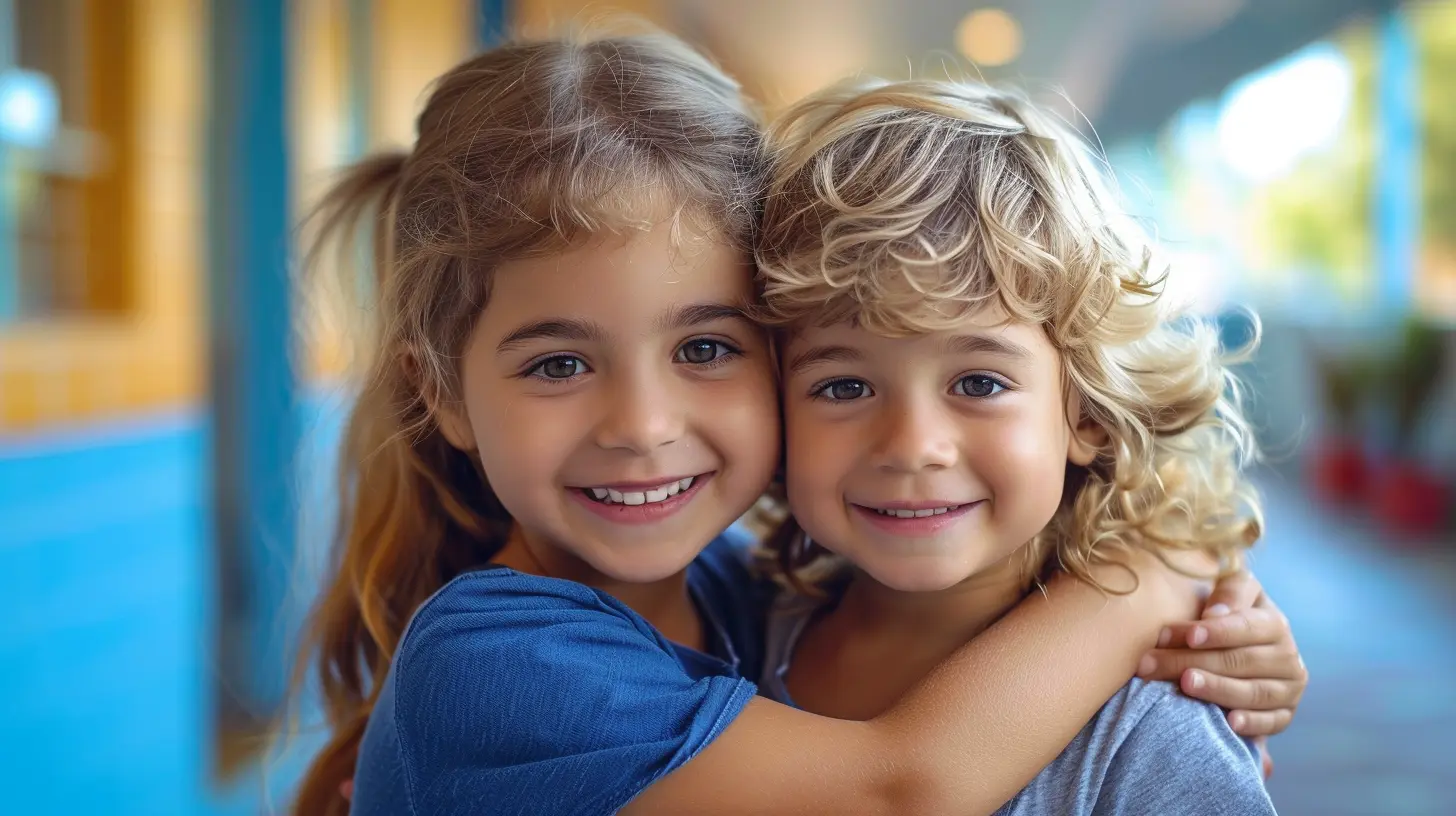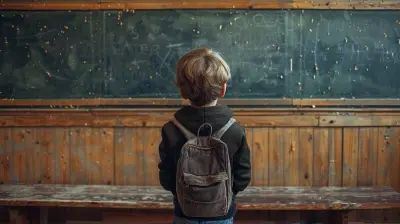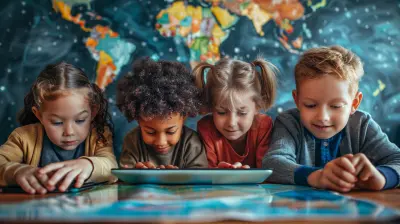5 February 2025
When it comes to education, we often focus on the curriculum, teaching methods, and standardized testing. But there’s something more subtle, yet equally powerful, that plays a significant role in student success: relationships. Yep, you heard that right. Building strong, meaningful relationships between students and educators can be the secret sauce to improved engagement, motivation, and overall academic performance.
But why is this so important? And how exactly do relationships influence student engagement? Let’s dive deep into this topic and find out why fostering connections in the classroom is the key to unlocking a student’s full potential.

Why Relationships Matter in the Classroom
Let’s face it—school can be tough. Between the pressures of exams, peer dynamics, and the general stress of growing up, students have a lot on their plates. Amid all this, a teacher who takes the time to build a positive and supportive relationship with their students can be a game-changer.Think about it. When someone believes in us, we’re more likely to believe in ourselves, right? The same goes for students. When teachers genuinely care about their students' well-being and progress, it creates a ripple effect that influences how students engage with their learning.
The Power of Trust
Trust is the foundation of any healthy relationship, and the teacher-student dynamic is no different. When students trust their teachers, they feel safe to ask questions, make mistakes, and take intellectual risks. This kind of environment fosters active learning, allowing students to feel more comfortable participating in discussions, sharing ideas, and collaborating with peers.On the flip side, a lack of trust can create a climate of fear and disengagement. Students who don’t trust their teachers may be reluctant to seek help or even attend class, leading to poor performance and a general lack of interest in their education.
Emotional Support and Student Well-Being
Students are not just academic machines; they are human beings with emotional needs. Teachers who acknowledge this and provide emotional support can have a profound impact on their students' mental and emotional well-being. Whether it’s offering a listening ear, showing empathy during tough times, or simply being a consistent and supportive presence, these small acts can make a world of difference.Research shows that students who feel emotionally supported by their teachers tend to have better academic outcomes, higher levels of motivation, and improved engagement in the classroom. It’s no surprise, then, that strong teacher-student relationships are often linked to lower dropout rates and higher graduation rates.

How Relationships Drive Engagement
Okay, so we’ve established that relationships are important. But how exactly do they drive student engagement? Let’s break it down.Fostering a Sense of Belonging
One of the primary ways relationships enhance student engagement is by fostering a sense of belonging. Students who feel connected to their teachers and peers are more likely to feel like they belong in the classroom. This sense of belonging can be a powerful motivator, encouraging students to actively participate in class activities, stay focused on their studies, and take pride in their work.When students feel alienated or disconnected, they’re more likely to disengage, skip class, or lose interest in their education altogether. A simple “How are you?” or “You did great today!” from a teacher can be enough to make a student feel seen and valued, which in turn boosts their motivation to engage in their learning.
Encouraging Active Participation
A classroom where students feel comfortable is a classroom where students are more likely to participate. When teachers build strong relationships with their students, they create an environment that encourages curiosity, collaboration, and discussion. Students who feel connected to their teachers are less likely to fear being wrong or asking “stupid questions,” which are often the moments where the most learning happens.Moreover, when teachers show interest in their students' lives and personal stories, it helps to frame lessons in a way that resonates with them on a deeper level. This personalized approach can make learning more relatable and engaging, leading to higher levels of participation.
Personalized Learning
Every student is different. They have unique strengths, weaknesses, learning styles, and interests. When teachers take the time to build relationships with their students, they can better understand these individual differences and tailor their teaching strategies accordingly. This is known as personalized learning, and it’s a fantastic way to keep students engaged.For example, a teacher who knows that one of their students is passionate about sports might incorporate examples from basketball or soccer into their math lessons. Or, a teacher who knows that a student struggles with anxiety might provide extra reassurance and support during stressful times, like exam season. These personalized touches can significantly increase a student’s engagement, as they feel that their individual needs and interests are being recognized and valued.

Building Relationships in a Digital World
In today’s digital age, building relationships with students may look a little different than it did in the past. With the rise of online learning platforms, virtual classrooms, and digital communication tools, the way we connect with students has evolved. But that doesn’t mean relationships are any less important—in fact, they may be more crucial than ever.The Challenges of Online Learning
One of the biggest challenges of online learning is the lack of face-to-face interaction. Without the physical presence of a teacher in the classroom, it can be more difficult to build trust and rapport with students. Additionally, students may feel isolated or disconnected from their peers, which can lead to disengagement and a lack of motivation.However, despite these challenges, it is still possible to cultivate strong relationships in an online learning environment. It just requires a bit more creativity and intentionality.
Strategies for Building Relationships Online
So, how do you build meaningful relationships with students in a virtual classroom? Here are a few strategies that can help:1. Regular Check-Ins: Make a habit of checking in with your students regularly. This could be through emails, video calls, or even a quick message in the chat. Ask them how they’re doing, if they’re struggling with anything, or if they need any extra support. These small gestures can go a long way in making students feel cared for and supported.
2. Personalized Feedback: When grading assignments or providing feedback, take the time to make your comments personal and specific. Instead of just saying “Good job,” try something like, “I really liked how you explained your reasoning in this section—great work!” This shows students that you’re paying attention and valuing their efforts.
3. Create Opportunities for Interaction: Encourage students to interact with one another through group projects, discussion boards, or breakout rooms during live sessions. The more students feel connected to their peers, the more engaged they’ll be in the learning process.
4. Be Accessible: Let your students know that you’re available if they need help or just want to talk. Having open office hours or setting up one-on-one meetings can make a big difference in making students feel supported, even in a virtual environment.

The Role of Peers in Student Engagement
While the teacher-student relationship is incredibly important, we can’t forget about the role that peer relationships play in student engagement. Friendships and peer connections can have a significant impact on how students feel about school and their motivation to succeed.Positive Peer Influence
When students have positive relationships with their classmates, they’re more likely to enjoy coming to school and participating in class activities. Friendships can provide emotional support, encouragement, and a sense of belonging, all of which contribute to greater engagement in the classroom.Moreover, positive peer influence can encourage students to adopt good study habits, stay focused on their academic goals, and take their education more seriously. On the flip side, negative peer relationships—such as bullying or exclusion—can lead to disengagement, anxiety, and poor academic performance.
Group Work and Collaboration
Encouraging group work and collaboration is a great way to foster positive peer relationships and increase student engagement. When students work together on projects, they have the opportunity to learn from one another, share ideas, and build meaningful connections. This not only enhances their learning experience but also creates a sense of community within the classroom.However, it’s important to be mindful of group dynamics. Teachers should ensure that all students feel included and that group work is structured in a way that allows everyone to contribute.
The Long-Term Benefits of Building Relationships
Building strong relationships in the classroom doesn’t just benefit students in the short term—it can have lasting effects on their academic and personal development. Students who experience positive relationships with their teachers are more likely to develop a love for learning, a growth mindset, and a sense of confidence in their abilities.These skills and attitudes can carry over into higher education and beyond, shaping students into lifelong learners who are motivated to pursue their goals and achieve success.
Conclusion
At the end of the day, education is not just about transmitting information—it’s about connecting with students on a human level. Building strong relationships in the classroom is essential for fostering student engagement, enhancing motivation, and creating a positive learning environment. Whether in a physical or virtual classroom, taking the time to get to know your students and show them that you care can make all the difference in their academic journey.Remember, the best teachers aren’t just educators—they’re mentors, supporters, and role models. And when students feel connected to their teachers and peers, they’re more likely to stay engaged, motivated, and excited about learning.












Vanessa Klein
This article beautifully highlights the critical role of relationships in fostering student engagement. Building strong connections not only enhances learning experiences but also creates a positive classroom environment. Let's continue to prioritize these relationships, as they are the foundation for student success and motivation. Great insights!
March 31, 2025 at 7:11 PM